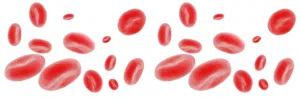Hepazec vs Vermazol: Which one is the better?
Last Updated on November 27, 2025
Exploring The Mechanisms: How Hepazec And Vermazol Work
Contents
- Exploring The Mechanisms: How Hepazec And Vermazol Work
- Frequently Asked Questions
- What are the primary uses of Hepazec and Vermazol?
- Are there any significant differences in the side effects of Hepazec and Vermazol?
- Can Hepazec and Vermazol be used interchangeably?
- How long does it take for Hepazec and Vermazol to show results?
- Which medication is more effective for treating tapeworm infections?
- Are Hepazec and Vermazol safe for children?
- What should I do if I miss a dose of Hepazec or Vermazol?
- Can pregnant or breastfeeding women take Hepazec or Vermazol?
When comparing Hepazec vs Vermazol, understanding their mechanisms of action is crucial. Both medications are widely used to treat parasitic infections, but they operate differently. Hepazec primarily targets liver flukes, while Vermazol, which contains Mebendazole, is effective against a broader range of intestinal worms. These differences in mechanism influence their efficacy, side effects, and usage guidelines.
| Medication | Primary Target | Key Ingredient |
|---|---|---|
| Hepazec | Liver Flukes | Triclabendazole |
| Vermazol | Intestinal Worms | Mebendazole |

Both medications disrupt the parasites’ ability to survive, but they do so in unique ways. Hepazec works by inhibiting the energy metabolism of liver flukes, effectively starving them. On the other hand, Vermazol interferes with the worms’ ability to absorb glucose, leading to their eventual death. These mechanisms highlight the importance of choosing the right medication based on the type of infection.
Mechanism Steps
- Hepazec targets liver flukes by inhibiting their energy metabolism.
- Vermazol disrupts glucose absorption in intestinal worms.
- Both medications cause the parasites to starve and die.
- Dead parasites are then expelled from the body naturally.
- Patients may experience mild side effects during treatment.
Comparative Efficacy
When it comes to efficacy, Hepazec vs Vermazol shows distinct differences. Hepazec is highly effective against liver flukes, making it the go-to option for such infections. Meanwhile, Vermazol excels in treating intestinal worms like roundworms, hookworms, and whipworms. The choice between the two depends on the specific parasitic infection being treated.
Usage Guidelines
Proper usage is essential to maximize the benefits of Hepazec and Vermazol. Hepazec is typically administered in a single dose, while Vermazol may require multiple doses over several days. Patients should follow their healthcare provider’s instructions carefully to minimize side effects and ensure effective treatment. Always consult a doctor before starting any medication.
Understanding the mechanisms of Hepazec and Vermazol is key to making an informed decision. Both medications are effective, but their specific uses and mechanisms differ significantly.
Frequently Asked Questions
What are the primary uses of Hepazec and Vermazol?
Hepazec and Vermazol are both antiparasitic medications used to treat infections caused by worms and other parasites. Hepazec is often prescribed for liver fluke infections, while Vermazol is commonly used for intestinal worm infections such as roundworms, tapeworms, and hookworms.
Are there any significant differences in the side effects of Hepazec and Vermazol?
Yes, the side effects of Hepazec and Vermazol can differ. Hepazec may cause gastrointestinal discomfort, dizziness, or headaches, while Vermazol is more likely to cause nausea, abdominal pain, or diarrhea. Always consult your healthcare provider for a detailed comparison based on your medical history.
Can Hepazec and Vermazol be used interchangeably?
No, Hepazec and Vermazol are not interchangeable. They target different types of parasitic infections and have distinct mechanisms of action. Using the wrong medication may reduce effectiveness or lead to complications. Always follow your doctor’s prescription.
How long does it take for Hepazec and Vermazol to show results?
The time frame for results varies. Hepazec may start showing improvement within a few days for liver fluke infections, while Vermazol typically takes 1-3 days to eliminate intestinal worms. However, the full course of treatment must be completed to ensure the infection is fully eradicated.
Which medication is more effective for treating tapeworm infections?
Vermazol is generally more effective for treating tapeworm infections due to its specific mechanism of action that targets intestinal parasites. Hepazec, on the other hand, is better suited for liver fluke infections and may not be as effective against tapeworms.
Are Hepazec and Vermazol safe for children?
Both medications can be used in children, but the dosage and safety depend on the child’s age, weight, and specific condition. Vermazol is often prescribed for pediatric cases of intestinal worms, while Hepazec is used less frequently in children. Always consult a pediatrician before administering either medication.
What should I do if I miss a dose of Hepazec or Vermazol?
If you miss a dose of Hepazec or Vermazol, take it as soon as you remember. However, if it is almost time for your next dose, skip the missed dose and continue with your regular schedule. Do not double the dose to make up for the missed one, as this may increase the risk of side effects.
Can pregnant or breastfeeding women take Hepazec or Vermazol?
Pregnant or breastfeeding women should avoid taking Hepazec or Vermazol unless explicitly prescribed by a healthcare provider. Both medications may pose risks to the fetus or infant, and their use should be carefully evaluated by a doctor to ensure safety.






Add comment